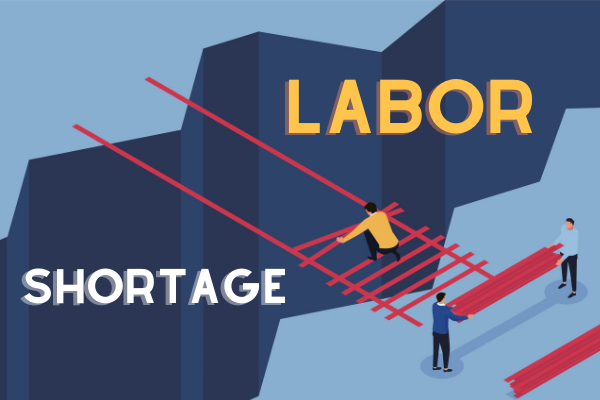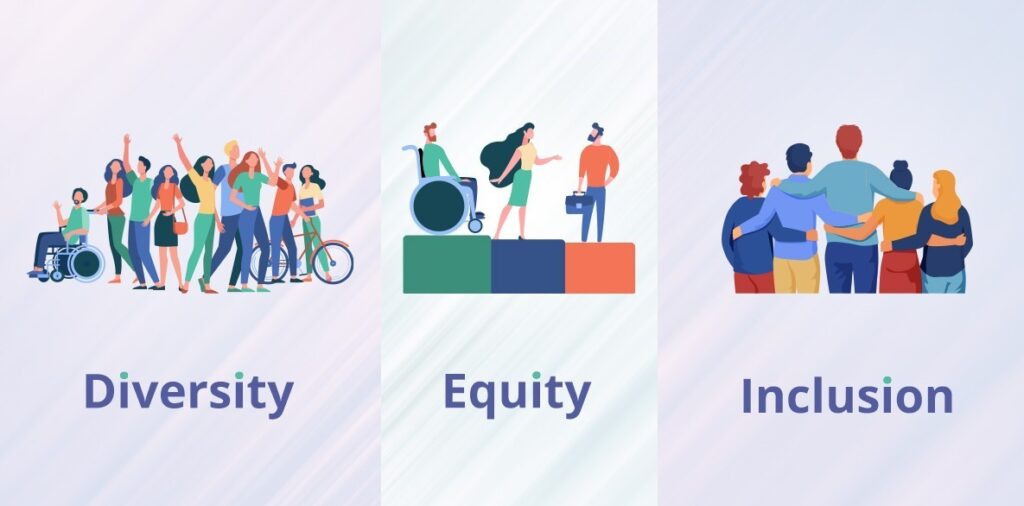Table of Contents
Top Hospitality Staffing Trends for 2024 – Stay Ahead of the Game
The hospitality industry is constantly evolving, and staffing trends are no exception. As we approach 2024, it’s crucial for businesses to stay ahead of the curve and adapt to the changing landscape. In this article, we’ll explore the top hospitality staffing trends that you need to be aware of to remain competitive and meet the challenges of the upcoming year.
The Great Hospitality Labor Shortage Continues
One of the most significant challenges facing the hospitality industry is the ongoing labor shortage. According to the American Hotel & Lodging Association, the industry is facing a staffing deficit of nearly 1.5 million employees. This shortage can be attributed to various factors, including retirements, career changes, and the industry’s perception as a challenging and low-paying field.
To combat this issue, hospitality businesses must focus on attracting and retaining top talent. This can be achieved through competitive compensation packages, attractive benefits, and a commitment to promoting work-life balance. Additionally, companies can explore alternative staffing models, such as gig workers and flexible staffing solutions, to fill gaps in their workforce.

The Rise of Gig Workers and Flexible Staffing Models
Speaking of alternative staffing models, the trend of gig workers and flexible staffing models is on the rise in the hospitality industry. This approach offers several benefits for both employers and workers:
Benefits for Employers:
- Cost-effective: Hiring gig workers or utilizing flexible staffing models can be more cost-effective than maintaining a full-time workforce, especially during peak seasons or events.
- Scalable workforce: Businesses can easily scale their workforce up or down based on demand, reducing the risk of overstaffing or understaffing.
Benefits for Workers:
- Flexibility: Gig workers and those in flexible staffing models enjoy greater flexibility in terms of scheduling and work-life balance.
- Variety: These workers can explore different job roles and gain diverse experiences across multiple hospitality businesses.
However, it’s important to consider the challenges associated with this trend, such as ensuring proper training, managing a dispersed workforce, and navigating compliance and legal requirements.

Automation and Technology Integration
In an effort to streamline operations and enhance efficiency, the hospitality industry is increasingly embracing automation and technology integration. This trend encompasses various aspects of staffing, including:
- Automated hiring and onboarding processes: Leveraging AI-powered platforms and chatbots to streamline the recruitment, screening, and onboarding processes, reducing administrative workload and speeding up the hiring cycle.
- AI-powered recruitment and candidate screening: Using advanced algorithms and machine learning to identify top candidates based on their skills, experience, and cultural fit, reducing bias and improving the quality of hires.
- Robotic assistance and self-service technologies: Implementing robotic assistants and self-service kiosks to handle routine tasks, such as check-in/check-out, room service, and concierge services, potentially reducing the need for front-line staff.
While automation and technology can enhance efficiency and productivity, it’s essential to strike a balance and ensure that the human touch, which is so crucial in the hospitality industry, is not entirely replaced.

Emphasis on Employee Well-being and Mental Health Support
The COVID-19 pandemic has highlighted the importance of prioritizing employee well-being and mental health in the hospitality industry. As a result, many businesses are recognizing the need to create a supportive work environment and provide resources to promote the overall well-being of their staff.
Strategies for promoting employee well-being and mental health support include:
- Fostering a positive work culture: Encouraging open communication, providing recognition and appreciation, and promoting a healthy work-life balance.
- Employee assistance programs: Offering access to counseling, therapy, and mental health resources to help employees manage stress, anxiety, and other mental health challenges.
- Flexible scheduling and time off policies: Allowing for more flexibility in scheduling and providing ample time off to prevent burnout and promote work-life balance.
By prioritizing employee well-being and mental health, hospitality businesses can improve employee retention, productivity, and overall job satisfaction, ultimately enhancing the guest experience.

Upskilling and Cross-Training for Versatile Workforce
To adapt to the ever-changing demands of the hospitality industry, businesses are increasingly focusing on upskilling and cross-training their employees. This trend aims to create a versatile workforce capable of taking on diverse roles and responsibilities as needed.
The benefits of a versatile workforce include:
- Adaptability: Employees with a broad range of skills can easily transition to different roles and departments, allowing businesses to respond quickly to changes in demand or staffing needs.
- Cost-savings: Cross-trained employees can fill multiple positions, reducing the need for specialized hiring and training.
To develop a versatile workforce, hospitality businesses can:
- Identify transferable skills: Analyze the skills required across different roles and departments, and identify opportunities for cross-training and skill development.
- Implement cross-departmental training programs: Offer training programs that expose employees to different areas of the business, fostering a deeper understanding of operations and encouraging skill-sharing.
- Promote continuous learning: Encourage employees to continuously learn and develop new skills through on-the-job training, online courses, or formal education opportunities.
By investing in upskilling and cross-training, hospitality businesses can build a more flexible and adaptable workforce, better equipped to handle the challenges of the industry.

Diversity, Equity, and Inclusion (DEI) in Hospitality Staffing
Promoting diversity, equity, and inclusion (DEI) in the hospitality industry is not only a moral imperative but also a business imperative. A diverse and inclusive workforce can lead to improved employee engagement, creativity, and better understanding of customers’ diverse needs.
To embrace DEI in hospitality staffing, businesses can implement the following strategies:
- Diversify recruitment efforts: Actively seek out and recruit from a diverse pool of candidates, leveraging job boards, community organizations, and employee referral programs focused on underrepresented groups.
- Implement blind hiring practices: Remove identifying information from resumes and applications to reduce unconscious biases during the initial screening process.
- Foster an inclusive work environment: Provide DEI training for all employees, promote open communication and respect for diverse perspectives, and establish clear policies against discrimination and harassment.
- Offer mentorship and career development opportunities: Support the professional growth and advancement of diverse employees through mentorship programs, training, and leadership development initiatives.
By prioritizing DEI in staffing efforts, hospitality businesses can create a more welcoming and inclusive environment for employees and guests alike, ultimately enhancing the overall experience and reputation of the business.

Leveraging Data-Driven Staffing Solutions
In the age of big data, hospitality businesses are increasingly turning to data-driven staffing solutions to optimize their workforce management and staffing strategies. This trend involves:
- Predictive staffing models and workforce planning: Using historical data and advanced analytics to forecast staffing needs, identify peak periods, and plan accordingly to ensure optimal coverage and efficient resource allocation.
- Real-time demand forecasting and scheduling: Leveraging real-time data on occupancy rates, reservations, and foot traffic to dynamically adjust staffing levels and schedules, minimizing overstaffing or understaffing situations.
- Performance tracking and data-driven decision-making: Collecting and analyzing data on employee performance, guest satisfaction, and operational metrics to identify areas for improvement, make informed staffing decisions, and optimize workforce utilization.
Additionally, many hospitality businesses are partnering with staffing agencies like Talent Employment Inc. to leverage their data-driven staffing solutions. Talent Employment Inc. specializes in providing skilled and experienced staff for various hospitality roles, light industrial needs, culture ambassadors, office and administrative support, as well as permanent and executive placement services. By combining internal data analytics with the expertise of staffing agencies, hospitality businesses can achieve more accurate demand forecasting, efficient scheduling, and access to pre-screened, qualified candidates.
By leveraging data-driven staffing solutions, hospitality businesses can achieve:
- Cost optimization: Improved staffing efficiency leads to cost savings through reduced overstaffing and minimized labor expenses.
- Enhanced guest experience: Ensuring adequate staffing levels during peak periods and deploying staff more effectively can improve guest satisfaction and enhance the overall experience.
- Increased productivity: Data-driven insights can help identify areas for employee training, process improvements, and workflow optimizations, boosting overall productivity.
To effectively implement data-driven staffing solutions, hospitality businesses must invest in robust data collection and analysis tools, as well as develop the necessary skills and expertise within their workforce or partner with specialized staffing agencies like Talent Employment Inc.

Conclusion
As the hospitality industry continues to evolve, staying ahead of staffing trends is crucial for businesses to remain competitive and meet the ever-changing demands of guests. By embracing trends such as gig workers and flexible staffing models, automation and technology integration, emphasis on employee well-being, upskilling and cross-training, diversity, equity, and inclusion, and data-driven staffing solutions, hospitality businesses can position themselves for success in 2024 and beyond.
How does Talent Employment help to reduce hiring risks for businesses?
By staying up-to-date with current laws and regulations, Talent ensures compliance and minimizes risks related to bad hires and misclassification, providing fully secure staffing solutions.
What is the process Talent Employment follows to streamline hiring?
Talent simplifies the hiring process by managing sourcing, screening, interviewing, and onboarding, allowing businesses to focus on retaining top talent efficiently.
Why should a company partner with Talent Employment during busy periods?
Talent can quickly scale up hiring efforts during peak seasons, ensuring businesses have the necessary staff to meet increased demand without delays.
What are the benefits of different hiring models available through Talent?
Talent offers models like direct-hire, temp-to-perm, and probationary engagements, allowing businesses to assess a candidate’s fit before making a long-term commitment.
How much time can businesses save by using Talent Employment for hiring?
Talent’s efficient hiring process can save businesses significant time, allowing managers to focus on other critical responsibilities rather than spending hours on recruitment.
What hidden costs should businesses consider when hiring staff?
Beyond hourly wages, businesses should account for statutory expenses, overhead costs, benefits, training, and risks associated with turnover and theft.
How does Talent Employment ensure cost-effectiveness for businesses?
By providing skilled staff at competitive rates, Talent can help businesses save an average of $80 per day per employee compared to traditional hiring methods.
What makes Talent Employment a preferred choice for over 100 companies?
Many companies choose Talent for their flexibility in staffing needs, from casual to full-time roles, and their proven success rate in providing qualified candidates.
How can businesses get started with Talent Employment for their staffing needs?
Interested businesses can reach out directly to Talent to discuss tailored staffing solutions that meet their specific requirements and increase overall efficiency.

